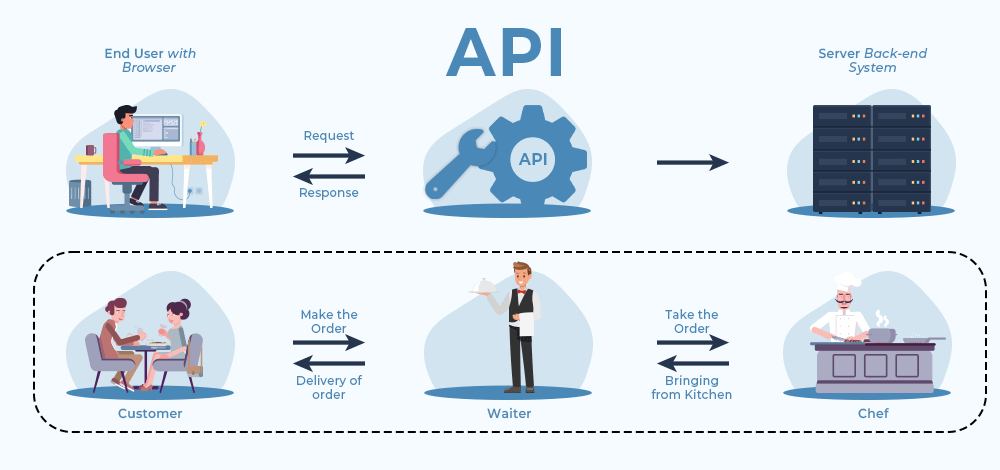
Uganda, often celebrated for its stunning natural beauty and vibrant culture, is quietly undergoing a technological revolution. Beyond the matooke plantations and bustling markets, a dynamic IT services sector is rapidly evolving, becoming the backbone for businesses, government, and innovation across the Pearl of Africa. Fueled by increasing internet penetration, a young tech-savvy population, and supportive government initiatives, Uganda’s IT service landscape offers a comprehensive suite of solutions driving efficiency, growth, and digital transformation.
Let’s explore the key IT services shaping Uganda’s digital future:
1. Managed IT Services (MITS): The Outsourced Tech Department
- What it is: Businesses, especially SMEs without large internal IT teams, outsource their day-to-day IT operations to specialized providers.
- Services Offered:
- Network Management & Monitoring: 24/7 oversight of LAN/WAN, Wi-Fi, firewalls, switches, and routers (including popular vendors like Cisco, MikroTik, Ubiquiti) to ensure uptime and performance.
- Help Desk & Technical Support: Remote and on-site support for hardware (desktops, laptops, printers), software (OS, Microsoft 365, G Suite), and user issues.
- Server & Infrastructure Management: Proactive monitoring, maintenance, patching, and optimization of physical and virtual servers (VMware, Hyper-V).
- Data Backup & Disaster Recovery (DR): Implementing automated backup solutions (local, cloud, hybrid) and robust DR plans to safeguard critical business data.
- Endpoint Management: Centralized control and security for all employee devices (laptops, mobiles).
- Vendor Management: Coordinating with ISPs, hardware suppliers, and software vendors on behalf of the client.
- Key Players: Local IT firms like Syntech Systems, Computer Point, Roke Telkom, and numerous specialized MSPs.
- Benefit for Uganda: Enables businesses of all sizes to access enterprise-grade IT support affordably, improving productivity and reducing downtime.
2. Cloud Computing Services: Scaling Beyond Physical Limits
- What it is: Accessing computing resources (servers, storage, databases, software) over the internet (“the cloud”) instead of owning physical infrastructure.
- Services Offered:
- Infrastructure as a Service (IaaS): Renting virtual servers, storage, and networking (e.g., AWS, Azure, GCP via local partners; emerging local data centers like Raxio).
- Platform as a Service (PaaS): Development environments and tools hosted in the cloud.
- Software as a Service (SaaS): Subscription-based access to applications like Microsoft 365, Salesforce, Google Workspace, and locally developed solutions.
- Cloud Migration & Strategy: Consulting and technical services to move workloads securely to the cloud.
- Cloud Management & Optimization: Ongoing monitoring, cost control, and performance tuning of cloud resources.
- Key Players: International cloud providers via local partners (e.g., Liquid Intelligent Technologies, MTN Business, Roke Telkom), Raxio Data Centre, and consultancies specializing in cloud.
- Benefit for Uganda: Reduces upfront capital expenditure, enables rapid scalability, facilitates remote work, and improves accessibility to powerful software tools.
3. Cybersecurity Solutions: Protecting the Digital Frontier
- What it is: Protecting systems, networks, programs, and data from digital attacks, theft, and damage.
- Services Offered:
- Risk Assessments & Vulnerability Scanning: Identifying security weaknesses in networks and applications.
- Managed Security Services (MSSP): 24/7 monitoring and management of firewalls (Fortinet, Palo Alto, Sophos), intrusion detection/prevention systems (IDS/IPS), and security information and event management (SIEM) tools.
- Endpoint Protection: Advanced antivirus, anti-malware, and device control solutions.
- Email Security: Protection against phishing, spam, and malware delivered via email.
- Data Loss Prevention (DLP): Preventing sensitive data from leaving the organization.
- Security Awareness Training: Educating employees to recognize and avoid cyber threats (critical given social engineering risks).
- Incident Response & Forensics: Services to contain, investigate, and recover from security breaches.
- Compliance: Helping businesses meet regulatory requirements (increasingly relevant in finance and telecoms).
- Key Players: Specialized cybersecurity firms (e.g., Serianu – with a strong regional presence, DigitSecure Africa), IT integrators with security practices, and telecom providers.
- Benefit for Uganda: Essential for protecting critical business data, financial transactions (especially mobile money), customer privacy, and national infrastructure as digital adoption surges.
4. Network Infrastructure & Connectivity: Building the Digital Highways
- What it is: Designing, implementing, and managing the physical and logical networks that connect devices and enable communication.
- Services Offered:
- Structured Cabling: Installation of copper and fiber optic cabling for offices and data centers.
- Network Design & Implementation: Planning and deploying LAN, WAN, and wireless networks (Wi-Fi 6 increasingly common).
- Internet Connectivity Solutions: Provisioning reliable broadband (fiber – rapidly expanding, DSL, fixed wireless, satellite) and leased lines.
- Unified Communications (UC): Integrating voice (VoIP), video conferencing, instant messaging, and presence into a single platform.
- Internet of Things (IoT) Network Infrastructure: Setting up networks to support connected devices.
- Key Players: Major telecom operators (MTN Uganda, Airtel Uganda, Africell Uganda), specialized network integrators, and infrastructure providers like Liquid Intelligent Technologies.
- Benefit for Uganda: The foundation for all other digital services. Improved connectivity drives business efficiency, enables e-services, and connects communities.
5. Software Development & Custom Solutions: Homegrown Innovation
- What it is: Web designing and Web Development, building, and maintaining custom software applications tailored to specific business needs.
- Services Offered:
- Custom Web & Mobile Application Development: Building bespoke solutions for e-commerce, logistics, healthcare, agriculture, finance (Fintech), education, etc.
- Enterprise Resource Planning (ERP) Implementation & Customization: Deploying and tailoring systems like Odoo, Microsoft Dynamics, SAP (less common but growing).
- Customer Relationship Management (CRM) Solutions: Implementing and customizing platforms like Salesforce or HubSpot.
- Systems Integration: Connecting disparate software systems to work together seamlessly.
- UI/UX Design: Creating intuitive and user-friendly interfaces.
- Software Testing & Quality Assurance: Ensuring applications are bug-free and perform well.
- Key Players: A vibrant ecosystem of software development companies (e.g., Kanzu Code, Fundi Bots – strong in education/hardware integration, DevConsults Ltd) and numerous innovative startups.
- Benefit for Uganda: Addresses unique local challenges, fosters innovation and entrepreneurship, creates high-value jobs, and reduces reliance on imported solutions.
6. IT Consulting & Strategy: Charting the Digital Course
- What it is: Providing expert advice to help organizations align technology with business goals and plan their digital journey.
- Services Offered:
- IT Strategy Development: Creating roadmaps for technology adoption and digital transformation.
- Technology Audits & Assessments: Evaluating current IT infrastructure, processes, and security posture.
- Digital Transformation Consulting: Guiding businesses through fundamental changes enabled by technology.
- IT Procurement Advisory: Assisting with vendor selection and negotiation.
- Business Process Automation (BPA): Identifying and implementing technology to streamline manual workflows.
- Key Players: Larger IT service providers, specialized consulting firms (often emerging from experienced practitioners), and international consultancies with local offices.
- Benefit for Uganda: Helps organizations invest wisely in technology, maximize ROI, avoid costly mistakes, and become more competitive.
7. Data Analytics & Business Intelligence (BI): Turning Data into Decisions
- What it is: Collecting, processing, analyzing, and visualizing data to uncover insights that drive better business decisions.
- Services Offered:
- Data Warehousing & Integration: Consolidating data from multiple sources.
- Dashboards & Reporting: Creating visual tools to track KPIs and performance metrics.
- Predictive Analytics: Using data to forecast trends and outcomes.
- Big Data Solutions: Handling and analyzing large, complex datasets.
- Key Players: Often offered by larger IT consultancies, specialized data firms, and increasingly integrated into software solutions.
- Benefit for Uganda: Empowers data-driven decision-making in agriculture, finance, healthcare, retail, and government, leading to improved efficiency and resource allocation.
8. Emerging Frontiers: AI, IoT & Blockchain
While adoption is nascent compared to core services, exploration and pilot projects are growing:
- Artificial Intelligence (AI) & Machine Learning (ML): Used in fraud detection (mobile money), crop disease prediction, customer service chatbots, and personalized recommendations.
- Internet of Things (IoT): Applications in smart agriculture (soil monitoring, irrigation), asset tracking, energy management, and environmental monitoring.
- Blockchain: Primarily explored for land registry transparency, supply chain traceability (especially coffee), and enhancing trust in transactions.
Challenges & Opportunities in Uganda’s IT Services Market:
- Challenges: Skills gap (especially in specialized areas like cybersecurity, cloud architecture), reliable power infrastructure outside major centers, cost sensitivity of the SME market, cybersecurity threats.
- Opportunities: Massive untapped SME market, rapid mobile adoption, supportive government policies (e.g., National ICT Policy, NITA-U initiatives), growing regional integration, potential for leapfrogging legacy systems with cloud and mobile-first solutions.
A Sector Poised for Significant Impact
Uganda’s IT services sector is far more than just fixing computers; it’s a dynamic and essential engine for the nation’s socio-economic development. From ensuring a small business in Kampala has secure email and backups, to enabling a farmer in Masaka to access market prices via mobile app, to helping a bank deploy robust fraud detection systems, IT services are deeply woven into the fabric of modern Uganda.
As infrastructure improves, skills develop, and awareness grows, the depth and sophistication of services offered will continue to expand. For businesses operating in Uganda, partnering with a capable IT service provider is no longer a luxury but a strategic necessity to compete, innovate, and thrive in the digital age. The Pearl of Africa is not just connected; it’s actively building its digital future, one service at a time.






